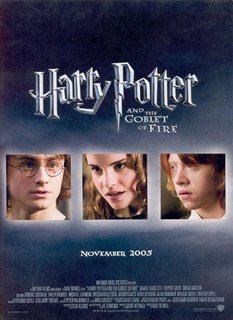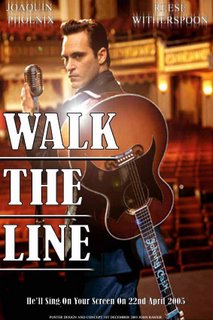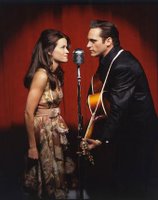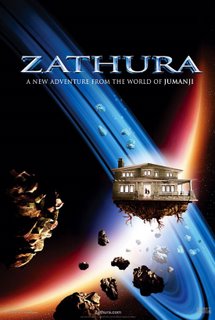Harry Potter and The Goblet of Fire

Not quite as enchanting this year
Harry Potter and the Goblet of Fire Site
Fantasy/Mystery/Thriller
Starring Daniel Radcliffe, Emma Watson, Rupert Grint, Michael Gambon, Maggie Smith
Rated PG-13 (for violence and frightening images)
Running Time: 157 Minutes
Released:November 18th, 2005


2 Out Of 5 Bites
Not exacting the same spell as its predecessors, it will seem preposterous to some die-hard Potterphiles that, if this installment is any indication, the series has alighted upon a plateau of mediocrity by Potter standards. The film is chock-full of magic and rife with various requisite tests and challenges for young Harry and the problem is that most of them are underwhelming.
The grand draw attending some of the buzz around Goblet revolved around the overall thematic "darkness" of the movie (in comparison to the previous three) and the maturation of the main cast, namely, Hermione, Harry and Ron who are now captive to their full-blown adolescence. The movie may only be darker by virtue of the fact that the tolerable limit of their main fan base for such imagery is commensurate with the on-screen apparent aging of the principals. You can expect the envelope to be pushed with each successive Potter flick, much like the innocence of many a young female starlet or crooner is peeled away by an overzealous handler in an effort to sell away sexuality to the oversexed masses. And incidentally, it might be a natural thing for the characters to begin to take on the common adolescent themes revolving around relationships and their sexuality. While it remains to be seen how the issue here will be handled (if at all) and I'm presupposing it can be handled with some careful guidance.
I would argue Goblet is no darker thematically than it ever has been, only excepting the graphic detail in visual and conceptual subject matter regarding the magical rites performed. Again- depending on which direction and to whom age-wise the producers will continue to cater- what's left is to up the ante in what you'll show.
Fourteen-year-old Harry (Daniel Radcliffe) is somehow chosen to be a participant in the Triwizard Tournament wherein the participants are set up against three tremendous tasks. The successful completion of one builds into the next. Harry is set against a trio of other young marvels from other schools. Each task calls upon not only successful magicianship, but calls the contender to sort through choices involving character in the face of peril. To its credit, the film aims to assign TO Harry positive traits in each of these.
The problem with the tasks are that each become less impressive than the preceding and by the time you realize this, you are also confronted with the paltry developmental character treatment of Harry's cohorts. Hermione seems to erupt into diva-esque emotive tantrums at the drop of some elusive instigating issue, but that can be forgiven given her maturational place. Ron (Rupert Grint) doles out his jealous punishment upon Harry in what he considers to be Harry's underhanded attempt to gain glory and notoriety, but actually cold-shouldering himself into a less-than-amusing series of snarls and now-patented Ron Weasley-Upturned-Mouth-I'm-A-Poor-Reject look. I thought the camera relied a bit too much on it.
In fact, the supporting roles of Hermione (Emma Watson) and Ron need to be imbued with more attention. Behaviorally, Hermione is sometimes a mystery (good) and at other times a wash-out, betraying her penultimate ball-appearance in a very complimentary dress (bad). She had an air of greater complexity as the book-wormish child earlier in the series, but there should be some curiosity as to whether Hermione's complexity will be grounded more in the overtly visual, the suggestion of more depth of character or a crafty mixture.
Of note, Brendan Gleeson, the Defense Against the Dark Acts instructor, Alastor "Mad Eye" Moody, weaves in some comedic achievement. Maggie Smith's staid and staunchy Minerva is right on in a scene with Moody after he's transfigured a pugnacious student.
Antagonists are often most effective when operating powerfully out of the shadows. Lord Voldemort's appearance in bodily form, though only for a short time, defanged him more than elevated him. It was somewhat of a treat to discover Ralph Fiennes as Voldemort, but Voldemort's form before this final embodiment was tantalizingly more grotesque. But see if Fiennes' voice doesn't sound just a little bit like the sing-songy Garrison Keillor.





